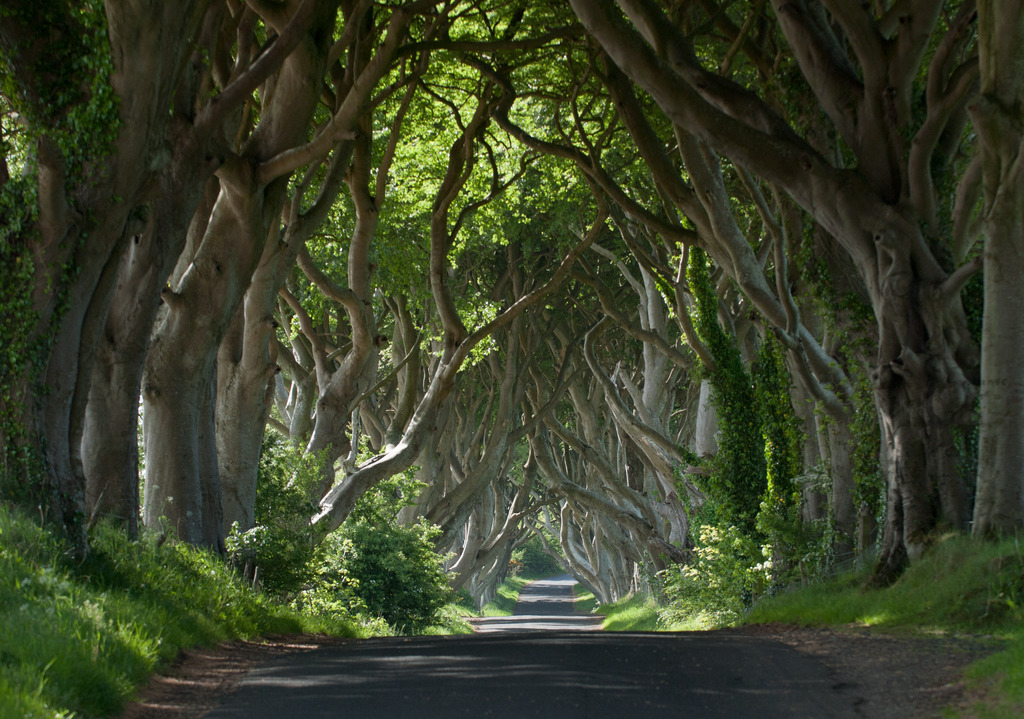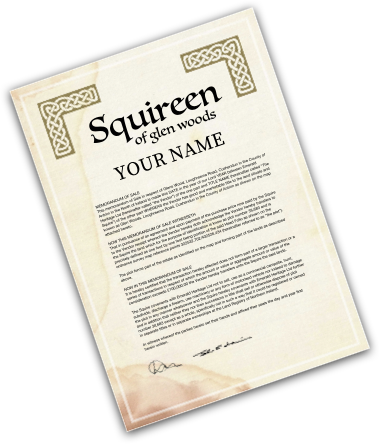Antrim
County Antrim sits right at the top of Ireland in the north-east corner so it’s no surprise its name derives from the phrase “lone dwelling”.
Armagh
County Armagh, home to the famous Cathedral City, comes from the Irish for Macha’s Hill. Macha was a Celtic Goddess from Irish pagan times.
Carlow
Unfortunately County Carlow doesn’t have anything near as glamorous. Depending on who you listen to Carlow means either a place of cattle or the place of four lakes…
Cavan
County Cavan is known simply as “the hollow”.
Clare
County Clare, home to the world famous (and slightly scary) Cliffs of Moher, might be named after the Norman de Clare family but a literal translation could also mean “level piece of land”.
Cork
County Cork, right down in the south-west, is Ireland’s largest county and derives its name from the meaning for “swamp”. We think Cork natives will probably prefer to stick with “The Rebel County” for now.
Derry
Talk to any Derry native and you’ll quickly discover just how passionate they are about the county that takes its name from “oak wood”.
Donegal
County Donegal, the second largest in the country, has long been famed for its rugged beauty but it was once known as “the fortress of the foreigners” who were most likely Vikings!
Down
County Down, home to Downpatrick and the burial place of Saint Patrick, was originally known as the fort.
Dublin
Given Dublin’s crucial role in Irish history it should come as no surprise that it’s name derives from “hurdled fort” and also black pool due to its location.
Fermanagh
County Fermanagh is famed for its lush lakelands and as a result its name comes from “men from the county of the lakes”.
Galway
Galway, a glorious county full of craic right in the heart of the Wild Atlantic Way, takes its name from the river “Gaillimh”.
Kerry
The Kingdom. If you talk to a Kerry man or woman you’ll quickly discover that they believe Kerry to be the best of all 32 counties. They might be right when you consider the incredible Ring of Kerry. Their name comes from the “tribe of Ciar”.
Kildare
County Kildare was known as “church of the oak” in its early days.
Kilkenny
Long before County Kilkenny became home to endless incredible hurlers, known as the Kilkenny Cats, it was known as the “church of Cainnech” in honour of St Cainnech who converted the county to Christianity in 597.
Laois
The Laois name comes from the “people of Lugaid Laigne”. Lugaid was a chieftain who drove invaders out of Munster.
Leitrim
County Leitrim, one of the smaller counties in Ireland, was known simply as the “grey ridge”.
Limerick
Limerick might be a beautiful spot of the country but its name drives from “bare spot / barren spot of land”.
Longford
County Longford was originally known as “the port”.
Louth
County Louth was named after Irish God Lugh.
Mayo
Mayo, one of the most beautiful counties in all of Ireland, originally meant the “plain of the yew”.
Meath
County Meath probably has one of the most practical names as it literally means “the middle”. It was once home to High Kings of Ireland and considered the seat of the country.
Monaghan
Monaghan has a similarly visual name as it meant “hilly land / bushy / place of little hills”.
Offaly
County Offaly derives its name from the Gaelic territory named Ui Failghe.
Roscommon
Roscommon literally means Coman’s wood and was named after Saint Coman who founded Roscommon monastery way back in 550!
Sligo
County Sligo takes its name from “shelly place” and is linked to the amount of fantastic shellfish that can be found in the county.
Tipperary
Tipperary was known as the “well of the Arra” long before it became a hurling powerhouse in the GAA world.
Tyrone
County Tyrone people are fiercely proud of two things – their county and their county GAA football team and they originally take their name from the “Land of Eoghan”, a tribute to Eogan mac Neill who founded the county.
Waterford
Waterford was originally called “Larag’s port”.
Westmeath
Similar to its neighbouring county Meath, Westmeath literally means “west middle”.
Wexford
County Wexford draws its name from the Norse meaning “fjord of the mud flats”.
Wicklow
Last, but most certainly not least, is County Wicklow which draws its name from the “Church of the Mantan” who was a saint whose teeth were knocked out by Irish pagans before the country was converted to Christianity!
--
Thanks for reading our blog! As a thank you, you can get 10% off any Irish plot of land by using the code: BLOG10


 FAST WORLDWIDE SHIPPING
FAST WORLDWIDE SHIPPING